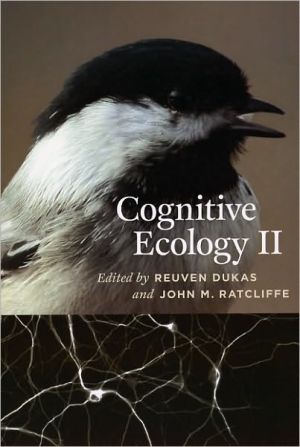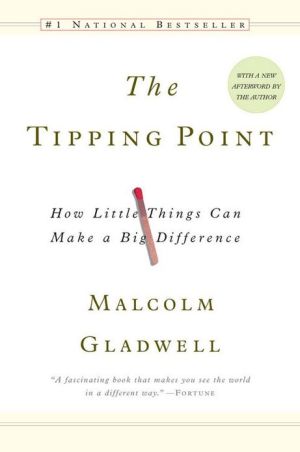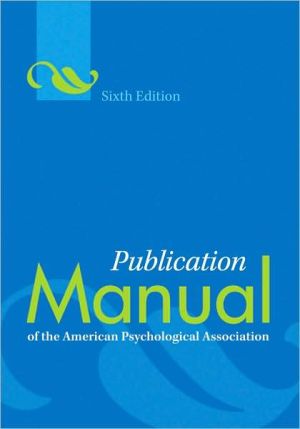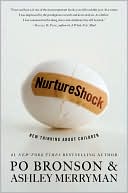Cognitive Ecology II
Merging evolutionary ecology and cognitive science, cognitive ecology investigates how animal interactions with natural habitats shape cognitive systems, and how constraints on nervous systems limit or bias animal behavior. Research in cognitive ecology has expanded rapidly in the past decade, and this second volume builds on the foundations laid out in the first, published in 1998.\ Cognitive Ecology II integrates numerous scientific disciplines to analyze the ecology and evolution of animal...
Search in google:
Merging evolutionary ecology and cognitive science, cognitive ecology investigates how animal interactions with natural habitats shape cognitive systems, and how constraints on nervous systems limit or bias animal behavior. Research in cognitive ecology has expanded rapidly in the past decade, and this second volume builds on the foundations laid out in the first, published in 1998.Cognitive Ecology II integrates numerous scientific disciplines to analyze the ecology and evolution of animal cognition. The contributors cover the mechanisms, ecology, and evolution of learning and memory, including detailed analyses of bee neurobiology, bird song, and spatial learning. They also explore decision making, with mechanistic analyses of reproductive behavior in voles, escape hatching by frog embryos, and predation in the auditory domain of bats and eared insects. Finally, they consider social cognition, focusing on alarm calls and the factors determining social learning strategies of corvids, fish, and mammals.With cognitive ecology ascending to its rightful place in behavioral and evolutionary research, this volume captures the promise that has been realized in the past decade and looks forward to new research prospects.
Acknowledgments
\ Stephen J. Simpson“A fundamental challenge in modern science is to understand the links from brains to the plastic behaviour of individuals, groups, societies and species assemblages—and to understand how these interactions are fashioned within an evolutionary and ecological context. Dukas and Ratcliffe and their impressive team of contributors accept this challenge in a fascinating and expertly edited volume that begins with the ultimate and proximate mechanisms of learning, then addresses exciting advances in avian cognition, before proceeding to decision making in mate choice and predator-prey interaction and culminating in the role of cognition in sociality. Biologists of all descriptions as well as psychologists and social scientists need to read this book.”\ \ \ \ \ David Stephens“Cognitive Ecology II is truly impressive. The wide range of questions addressed demonstrates this field’s vitality and broad appeal. It illustrates basic principles using examples from across the animal kingdom and a wide variety of sensory systems and adeptly combines progress reports on well-established topics (e.g. bird song) with syntheses of emerging topics (e.g. social information processing). Ten years ago, Dukas’s first Cognitive Ecology identified a new field; Cognitive Ecology II will define and motivate this exciting and important discipline for the next decade.”\ \ \ Luc-Alain Giraldeau“In the first Cognitive Ecology, Reuven Dukas succeeded in bringing together the disparate threads of research in a then just emerging discipline. The book was certainly not alone in attending to animal cognition, but for behavioural ecologists it served as a reference that made clear that learning, attention, and perception could no longer be ignored. More than ten years later, Dukas’ and Ratcliffe’s Cognitive Ecology II provides vivid evidence that the field has achieved maturity and structure. The book updates some of the major topics covered in the first volume, such as avian song, predator-prey interactions, and mate choice, and offers a treatment of emerging fields such as social information use and innovations. But most importantly, it continues in its role of reference for all those that ask questions about behavioural mechanisms. If you need to assess the current state of animal cognition and want to know which questions will pave the way for the coming decade, then Cognitive Ecology II is an absolute must-read. Buy it.”\ \








